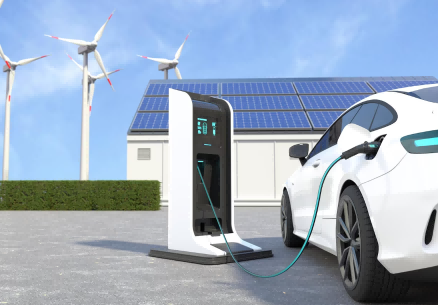 Market Insights
Market Insights
 04-07-2023
04-07-2023

The Society of Motor Manufacturers and Traders (SMMT) said on Friday that a total of 79,046 vehicles left U.K. factories last month, up nearly 27 percent from a year earlier. That's still 31.9 percent below the 2019 output level. The potential for growth is huge, but that growth is now at risk from tariffs," said Chief Executive Mike Hawes.
While the easing of supply chain disruptions has boosted vehicle production, the U.K. auto industry is still grappling with post-Brexit export rules.
Under the trade deal struck when the U.K. left the EU, rules of origin require that an increasing number of electric vehicle parts be produced locally from 2024 onward to qualify for tariff-free trade.
The rule has drawn criticism from several automakers because it would make those vehicles more expensive and could hurt demand.
"We need to make sure that we don't impose these (tariffs), otherwise there is a real possibility that electric vehicles will be more expensive and face tariffs, whereas gasoline diesel will not.
Sales of hybrid electric vehicles, plug-in hybrids and pure electric vehicles together soared 95.4 percent in May to 27,636 units, accounting for 35 percent of total vehicle production in the period, the SMMT said.
Exports accounted for 79.5 percent of total production, with the European Union remaining the largest market, the SMMT said.
Auto Manufacturing Steadily Recovering
Production has recovered steadily since the Covid-19 pandemic, with manufacturing jobs in the sector increasing by 4 percent to 208,000 last year. 24,513 more all-electric vehicles hit the road in May, up 58.7 percent year-on-year, with a 16.9 percent market share.
Last year, while annual UK car production fell by nearly a tenth to 775,014 units, the lowest level in more than six decades, UK plants produced a record 234,066 pure electric, plug-in hybrid and hybrid electric vehicles, with total sales up 4.5 percent year-on-year to account for nearly a third of total production.
On June 27, the SMMT called on all political parties to recognize the strategic importance of the sector to the U.K., which faces stiff global competition as other countries offer huge cash incentives and subsidies to attract green manufacturing.
Business Secretary Kemi Badenoch told the conference that she "has heard clearly about the issue of rules of origin" and said she plans to raise it with the EU ambassador to the UK on Tuesday.
Badenoch, who supports Brexit, also acknowledged that "I think Brexit is more dramatic for this industry than for many others.
She also said she will release an advanced manufacturing plan next month, which will focus on the transition from cars to electric vehicles.
Labour has said it would invest billions of pounds in the auto industry if in power. On Tuesday, it laid out measures to "accelerate" the transition to electric vehicles.
Shadow transport secretary Louise Haigh announced a plan to rapidly scale up battery production for electric cars, which Labour said would create 80,000 jobs and trigger more than £30 billion of investment.
In a speech at the SMMT conference, Haigh urged the government to take urgent action on the UK's exit from EU trade rules. "Labour urges the government to prioritise a deal with the EU to ensure manufacturers have time to prepare to meet rules of origin requirements and make Brexit work for them."
She said Labour would "increase resilience and security" by boosting domestic battery capacity and expanding the rollout of electric vehicle chargers.
Category
Leave Message for Demo Request or Questions


 T-info
T-info T-discovery
T-discovery

 My
Tendata
My
Tendata Market Analysis
Market Analysis Customer
Development
Customer
Development Competitor
Monitoring
Competitor
Monitoring Customer Relationship
Customer Relationship





































































































































